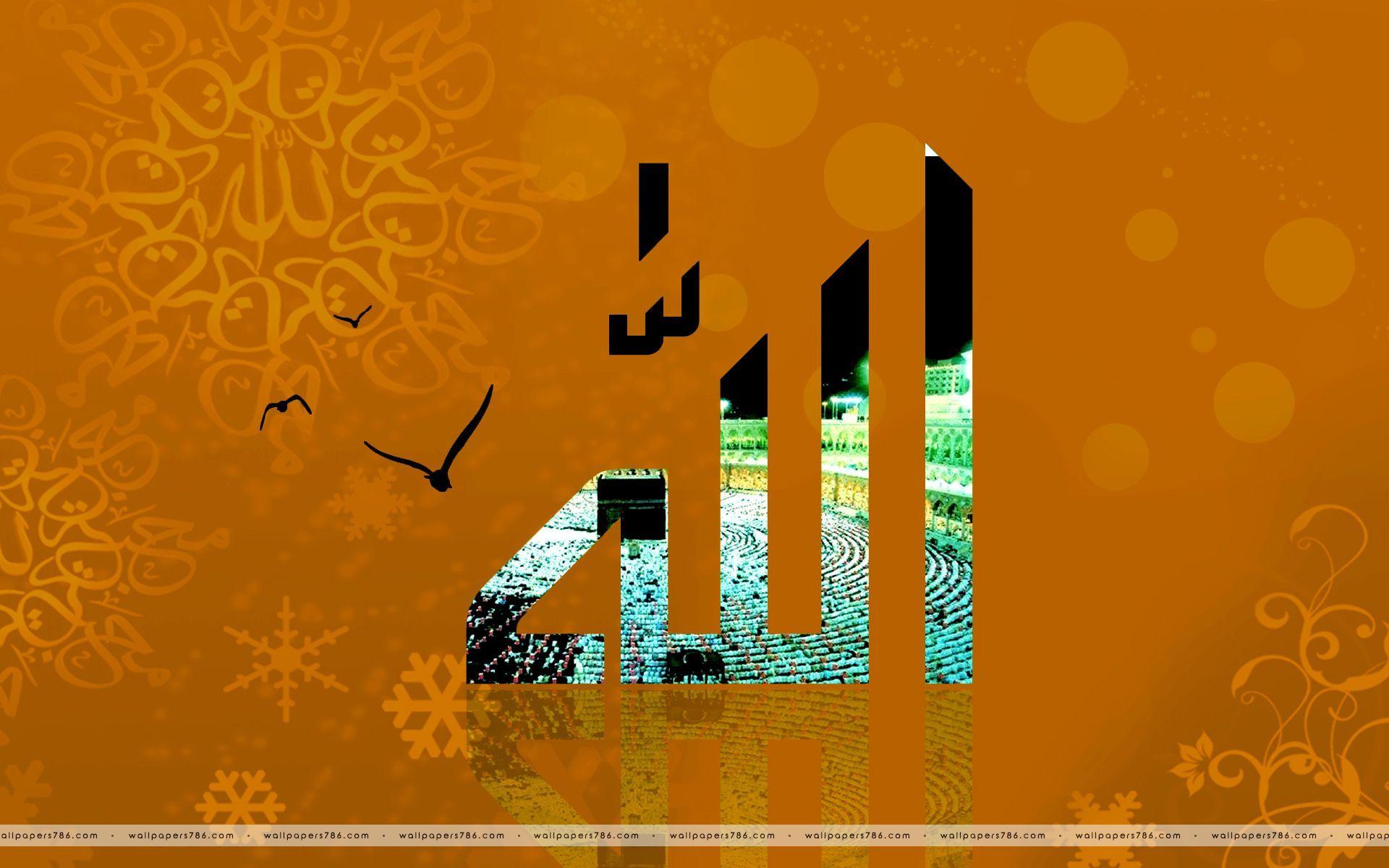
Who is Allah?
Within Islam, Muslims worship one God, also known as Allah. Muslims use the Arabic word for 'God': Allah, but see no problem in using the term 'God' also. So Allah and God refer to the same in Islam.
Allah is the Creator, the One who gave everything and everyone a beginning. He also gives an end through death. He is capable of anything, and so nothing escapes His ability.
Does Allah have a partner or something with which He carries out His control? Within Islam, Allah does not need anything or anyone. He is one and has no partners. Allah has no children. He is perfect and therefore does not need anyone.
Allah is in complete control and He is the only god. So everything that is worshiped besides Him is falsehood according to Islam, because He is the only true god. Nothing or no one has the right to be worshiped except Him, because He is the Creator. Everything and everyone depends on Him, and He is independent.
The Attributes of Allah
So Allah is the Creator of everything and everyone. There was not a moment when Allah did not exist nor a moment when Allah will end. He has always existed and He has no end. Nothing preceded Him, and everything came into existence through Him.
Where is Allah? In Islam it is believed that Allah is above the heavens. His Knowledge and Power reaches every place, but He Himself is above the heavens.
The belief that Allah is above is in accordance with the natural disposition. We look or point to the sky when we refer to God. Christianity and Judaism also believe that God is above.
Allah and the predestination
Within Islam, there is a concept of predestination that every Muslim must believe in. For Allah has already predetermined what happened in the past, what is happening now and what will come. So he has knowledge about the past, present and future. In short, nothing escapes His knowledge.
For example, He already knew that you made the decision to come to this article so that you can learn more about Him.
Allah has created various creatures including humans and jinn. Both have been given free will. So they have their own control over what they want to do or believe. The choice is up to you and me, whether we decide to do right or bad.
Allah already knows what you will do with your free will. So it is not the case that He will come to know it after you take action.
Allah is the One Who Legislates
Within Islam, Allah has revealed various laws. The Quran is therefore also seen as the law book of the Muslims. It states, for example, that the consumption of alcohol has been declared prohibited for Muslims.
Muslims, unlike the Jews, believe that only God has the right to make laws. In Judaism, rabbis have the ability to make additional laws if they feel the need to. For example, rabbis can make certain laws that are separate from what is in the Torah.
So Allah alone determines what is allowed and what is forbidden. No one has the right to legislate except Him.
Everything will return to Allah
Muslims believe that everything and everyone will eventually have to return to Allah. On the return, Allah will judge the people and jinn by their works. This will be the moment where Allah will decide whether one will receive the punishment of Hell or enter the reward of Paradise.
Within Islam, unlike Hinduism and Buddhism, there is no concept of reincarnation. Muslims believe that after they die they will return to Allah to be judged by their deeds.
The appearance of Allah
Allah is Unique in His Attributes, that means also in His appearance. Yes, Allah has an appearance, and this has been proven from the Quran and prophetic narrations.
Is God, then, as some describe "a man in the clouds"? No, Allah is unique, so nothing is like Him. He is not human and He does not have a gender.
Because the Quran was revealed in Arabic, Muslims refer to God as 'he'. This is because 'he' is used as a standard reference in the Arabic language, but this also applies to all other languages.
Allah describes Himself in the Quran with various attributes of appearance. For example, He describes Himself with a Face, Hands and Form.
Within Sunnism, Muslims understand these Attributes as literal attributes, but it is stated that He cannot be compared with anything or anyone. Just as God can see and hear, so can humans, but only on a completely different level. So hands are not understood here as hands that humans have.
So it is impossible to imagine Allah and know how he looks like in detail, because He is not comparable to anything or anyone. Its details are therefore unknown to us.
The Names of Allah
Muslims do not understand the term 'Allah' to be one of His Names. Rather, this is understood as a title.
Within Islam, Allah has given His worshipers unique information including information about His Names. Allah has 99 Names, all Unique to Him alone.
God, or Allah; through the past has never revealed this many Names except to the followers of Islam. Islam is the last religion revealed by God. So it is actually quite special that the Muslims have received extra information about who Allah is.
The Names of Allah have been revealed in the Quran and prophetic narrations (Hadith). They are spread throughout the Quran and you will therefore often encounter them. The Names that occur most frequently in the Quran are: Ar-Rahmaan (The Beneficent) and Ar-Raheem (The Merciful).
What does Allah want from us?
In Islam, the reason that humans are created is told in the Quran. Allah says that He created us all for one purpose only, and that is to worship Him alone.
So Muslims believe that the purpose of this life is to worship Him as He wants to be worshiped. Worship of Allah is done only by following His commands. For example, He says not to worship anyone but Him, and this is the foundation of Islam.
The Oneness of Allah, or Tawheed, is what Muslims must adhere to. For example, they may not associate partners with Him by worshiping another, giving another Allah's rights or seeing another as a god besides Him.
So Allah wants you to worship Him alone. The basic worship of Allah consists of three parts, namely: belief, deeds and statement.
- Belief in Allah
- Belief in the angels
- Belief in the books
- Belief in the messengers
- Belief in the Day of Judgement
- Belief in predestination, the good and the bad
- Act on the meaning of the Shahada and pronounce it
- Perform the five daily prayers
- Giving Zakat
- Fasting of the month Ramadan
- Performing Hajj (pilgrimage)
In short, a Muslim is one who believes in the six pillars of faith, practices the five pillars of Islam and maintains His Oneness by not associating partners with Him.
For the person who is interested in Islam and wants to convert, it is required that he knows who Allah is, believes in the six pillars of faith and does not oppose His Oneness in deed, belief or statement. Finally, he utters the Shahada to convert to Islam.


